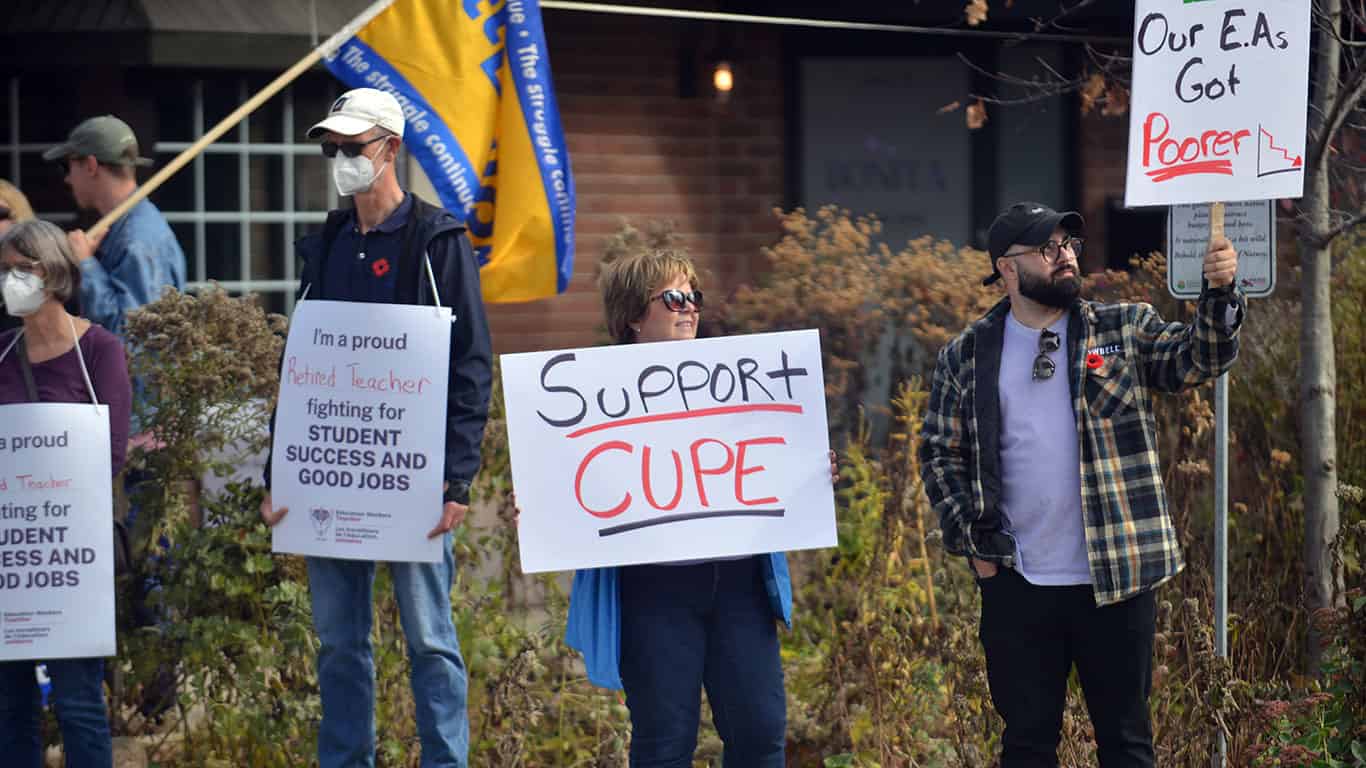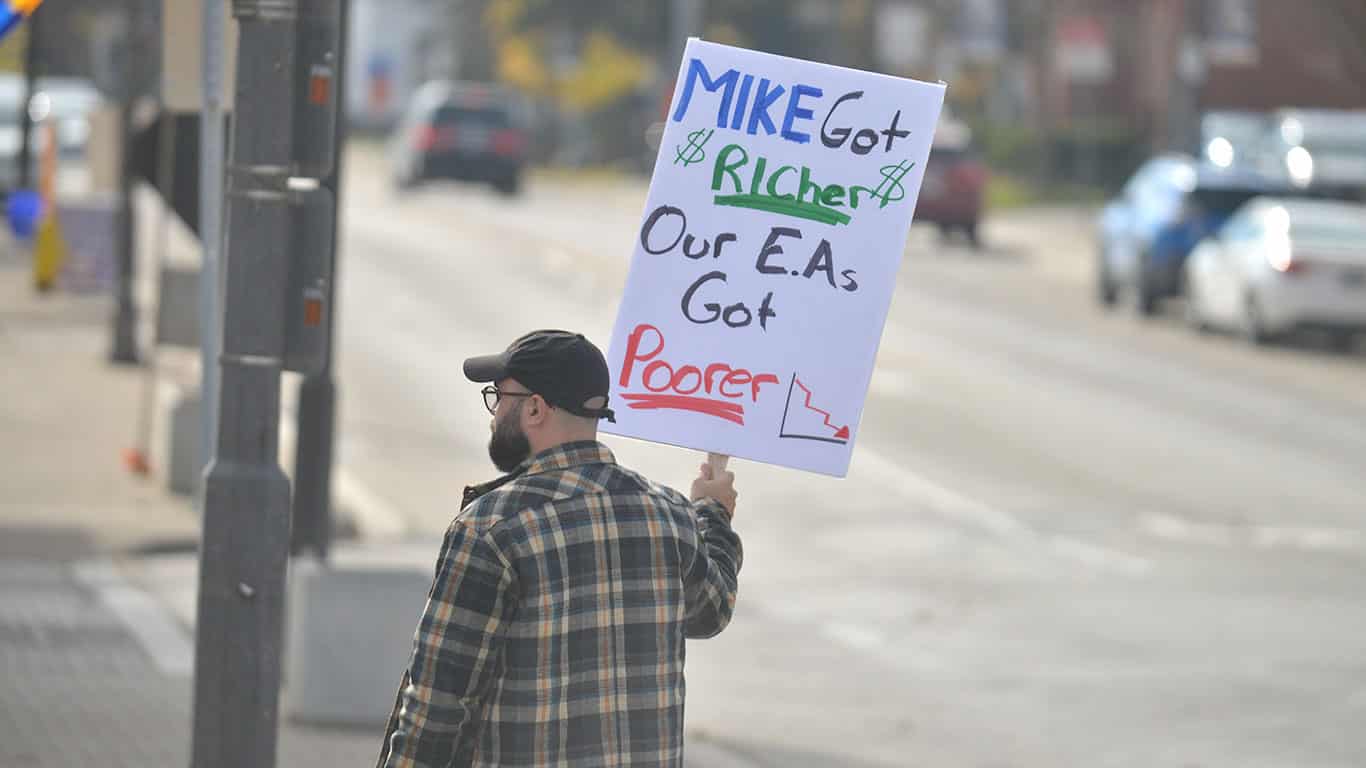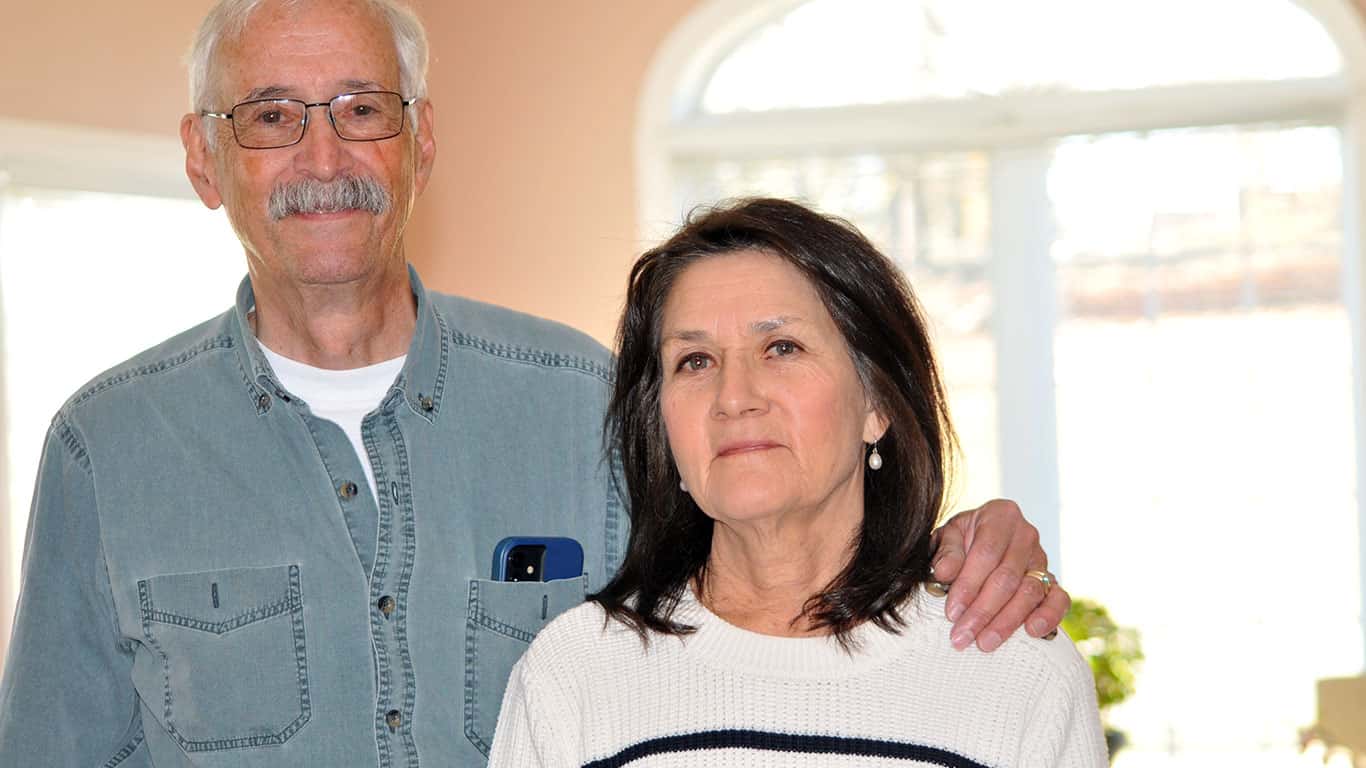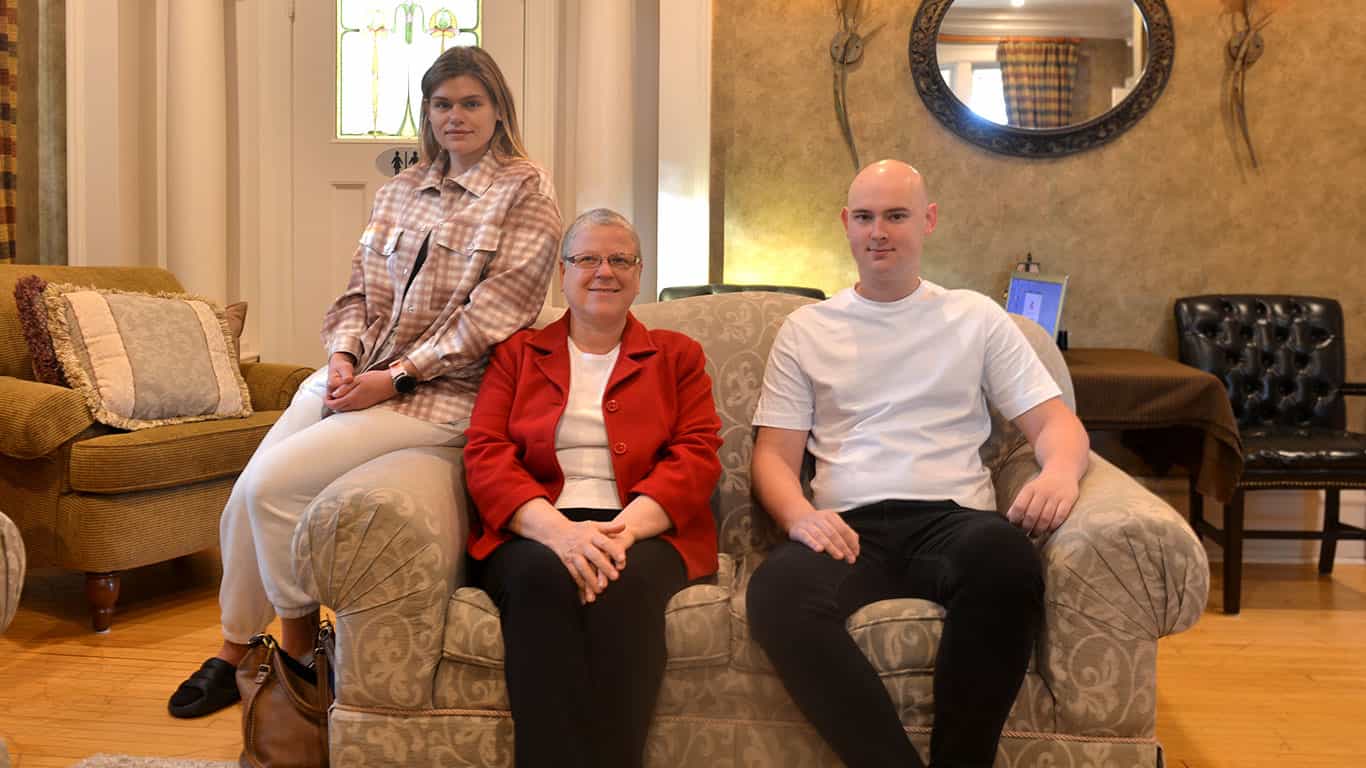Ontario’s 55,000 education workers were back on the job Tuesday after ending their strike action when the province withdrew back-to-work legislation, but a new contract remains to be negotiated.
The Canadian Union of Public Employees says its ready to take action again if a deal is not reached.
The workers – custodians, educational assistants and early childhood educators – walked out on Friday and Monday in contravention of Ontario’s Bill 28, which made the strike illegal and imposed a new contract, the Ford government opting to use the Charter of Right’s notwithstanding clause to pre-empt legal action.
Challenges lie ahead, says president of CUPE Local 2512, which represents Waterloo Catholic District School Board workers who walked out, forcing the closure of schools.
“If they don’t follow through and if they don’t repeal the bill and make us an offer that is good for our students and for ourselves, we’re going to be ready to go back again. We as education workers, we are not going to accept less than what we’re worth or we deserve,” Mechelle O’Hagan told the Observer on Tuesday.
Bill 28 was passed last week under what Education Minister Stephen Lecce dubbed the “Keeping Students in Class Act.” However, Premier Doug Ford promised to repeal the bill by November 14 and both sides decided to return to the bargaining table, meaning that CUPE ended their strike after just two days.
On Tuesday, Ford indicated an improved offer had been made to the lowest income earners, however he declined to get into specifics. The union had been asking for an 11.7 per cent annual raise, later halving that, while the province had imposed a 1.5 to 2.5 per cent increase.
“I was proud of all the members sticking together like we stood strong. We stared down at this attack against our rights. This bill should have never passed,” O’Hagan said.
The mood of workers was on display November 4 outside the Elmira constituency office of Kitchener-Conestoga MPP Mike Harris.
Chris Fernick, an IT worker and a CUPE support staff member, said union members were fighting for their wages, their rights as workers and “for the students.”
“For the last 10 years, we have not had large increases, everything has been 0 per cent or one per cent. That’s 50 cents or 30 cents an hour. We’re asking for $3.25 an hour. That’s what we have asked the government for, and they have legislated that most of our workers are going to get 1.5 per cent. I think it is fair to ask for $3.25 an hour. They like to throw numbers out like percentages. But in reality 11 per cent for somebody making $39,000 is not that much,” Fernick said.

Ken Gallipeau, who retired in June after 32 years of working as an education assistant, said he wanted to show support for those still working.
“Thirty-two years ago, we were just under $13 an hour. Now we’re not quite $24. What’s wrong with this picture? Go work for $35,000 a year gross. That doesn’t happen. In 2019, the provincial government, they came out and cut $800 for students out of our classrooms and made bigger classes,” he said.
Gallipeau worked two jobs to make ends meet he said.
“[For] 32 years I worked two jobs. Summertime, laid off. March break, laid off. Christmas, laid off. I had to work two jobs,” he said.
Parent Ryan Hasbry said while he has always supported the education workers and what they are asking for, the use of the notwithstanding clause brought him out to last Friday’s protest.
“The idea that even prior to a strike, they shut down the option of striking and right off the bat, before the negotiations even got close to finishing… I feel like it’s an attack on our ability to strike at all. If this goes through on this union, striking is over,” he said.
He also doesn’t think the union is asking for too much.
“They’re talking about two or three bucks an hour. I work in tech and two or three bucks an hour, I’ve made that much more every year for years. They haven’t had it in 10 years,” Hasbry said.
In a Tuesday interview, Harris said he was happy to see kids back in class.
“That’s the number-one goal and I think it gets a little bit lost sometimes that that is really what we’re trying to achieve here. I’m very excited that the kids are back in school today, certainly here in the region with our Catholic board and with other schools across the province,” Harris said.
What CUPE is asking for is an astronomical number, the MPP added.
“So we had come back with a bit more of a modest ask at almost 11 per cent over the time of that contract, which we had said would be four years. The contracts in question that we’re talking about, these are the highest paid education workers in all of Canada.”
The use of the notwithstanding clause was a last resort, Harris stated.
“Hopefully we’re able to negotiate a deal over the next few days here by the end of the week. And we can put a little bit of this behind us and move forward and keep kids in class and… make sure that they’re able to catch up on some of the stuff that they’ve missed over the last couple of years,” he said.
O’Hagan had a completely different take on the situation.
“If the bill hadn’t passed and they had been at the table giving us a fair deal, none of this would have happened,” she said.









